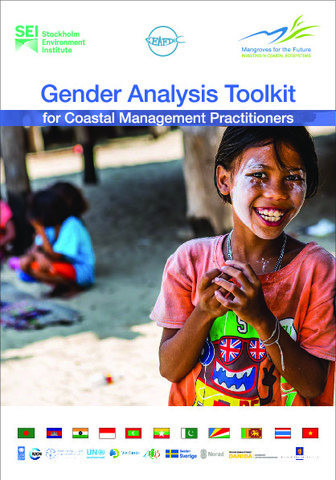| dc.date.accessioned | 2019-03-11T01:37:59Z | |
| dc.date.available | 2019-03-11T01:37:59Z | |
| dc.date.issued | 2018 | |
| dc.identifier.citation | MFF, SEI, SEAFDEC (2018). Gender Analysis Toolkit for Coastal Management Practitioners, Thailand: MFF, 50pp | en |
| dc.identifier.uri | http://hdl.handle.net/20.500.12066/4565 | |
| dc.description.abstract | Mangroves for the Future (MFF), Southeast Asian Fisheries Development Center (SEAFDEC) and Stockholm Environment Institute (SEI), are all Swedish International Development Cooperation Agency (Sida) funded programmes with a shared interest for improving gender integration and mainstreaming in their respective programmes, and agreed to collaborate through a regional study project. The project provides a significant opportunity to pull together much needed information about the roles of men and women and gender
inequalities in coastal resource management, local employment opportunities, and women’s engagement in environmental decision-making. The partners will use the results of the study to meet their common objectives and commitments to integrate gender in environment and sustainable development at the local and policy levels.
This MFF-SEAFDEC-SEI Sida funded regional study explored gender patterns in coastal and marine resources management to improve
understanding about the state of women and men in environmental decision-making and structural challenges preventing equitable
opportunities for men and women in the coastal fisheries sector. The study covers 12 countries (South East Asian group: Cambodia, Myanmar, Indonesia, Malaysia, Philippines, Thailand and Vietnam; South Asia group: Bangladesh, India, Maldives, Pakistan, Sri Lanka). These countries comprise four MFF-SEAFDEC shared countries, two SEAFDEC countries and six MFF countries. The study explored the national policy conditions that support gender equality in environment and natural resource management, and the local realities and norms influencing men’s and women’s engagement in decision-making regarding environment and natural resource management. The toolkit was used to guide and facilitate data collection in MFF and SEAFDEC sites.
1. Introduction and purpose
2. Introduction to qualitative gender analysis and domains for investigation
3. Application | en |
| dc.language.iso | en | en |
| dc.publisher | Secretariat, Southeast Asian Fisheries Development Center | en |
| dc.subject | gender | en |
| dc.subject | toolkit | en |
| dc.title | Gender analysis toolkit for coastal management practitioners | en |
| dc.type | Book | en |
| dc.contributor.corporateauthor | Mangroves for the Future | en |
| dc.contributor.corporateauthor | Stockholm Environment Institute | en |

